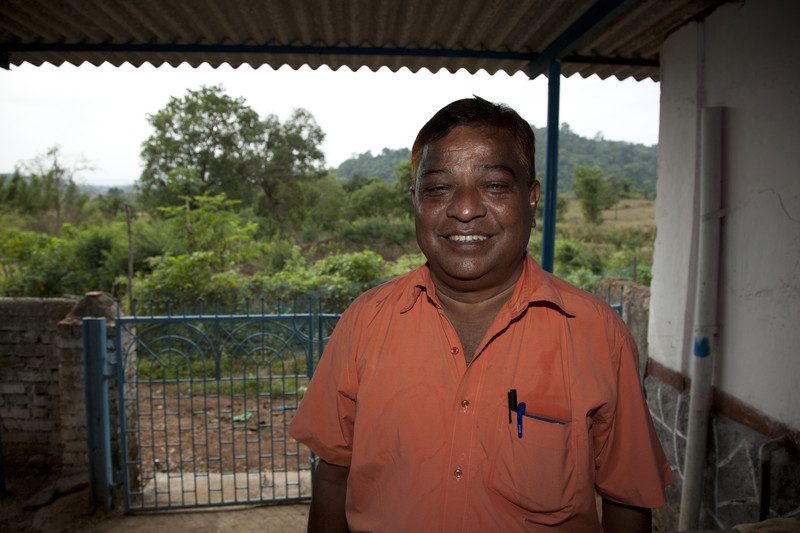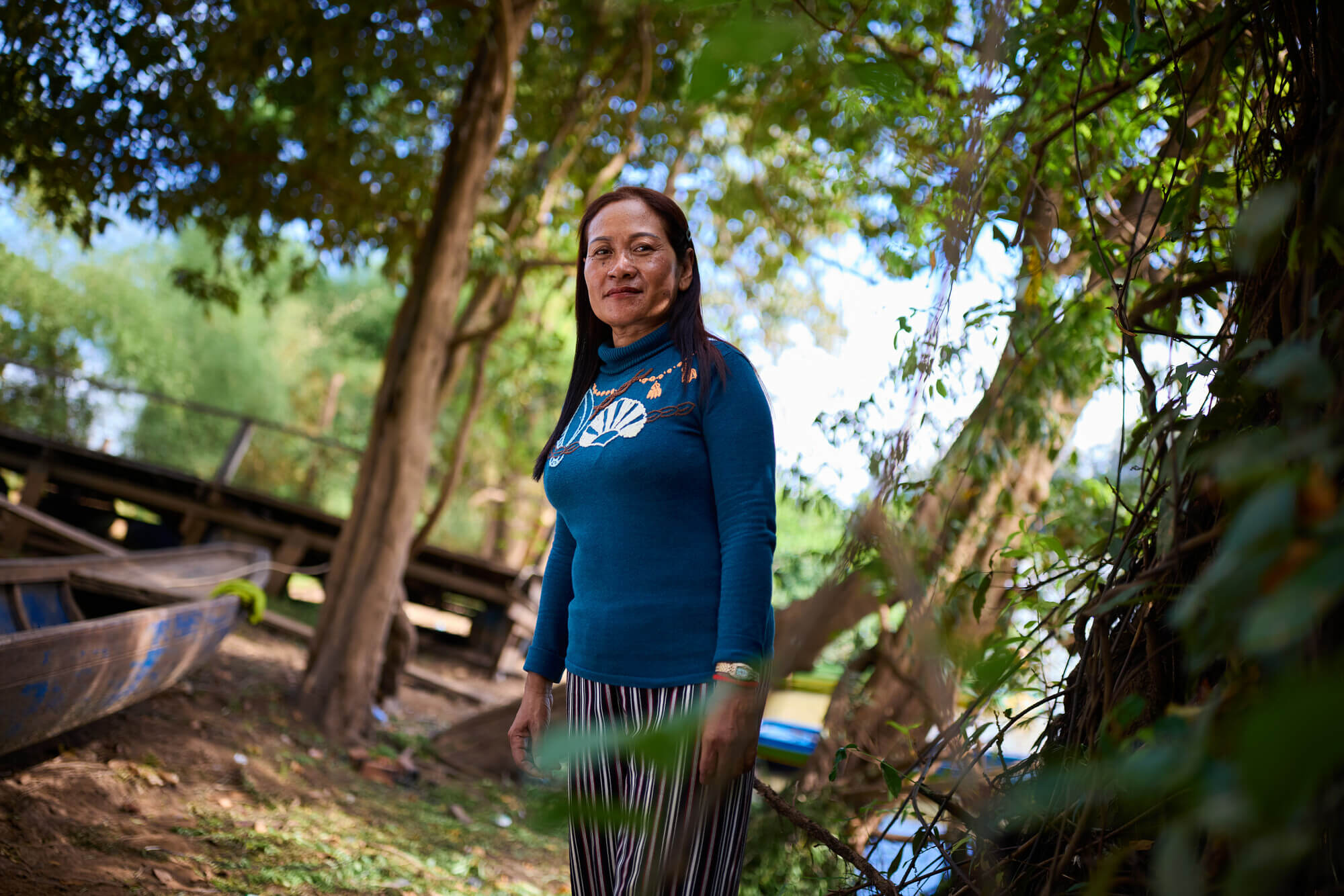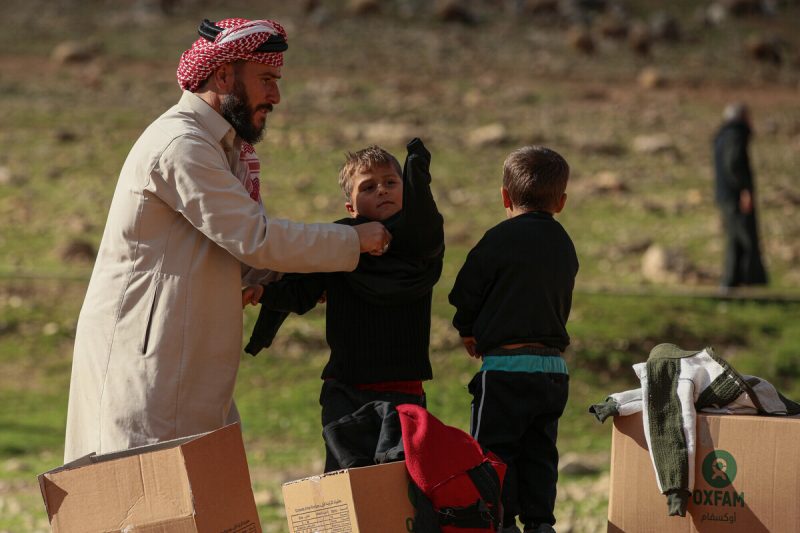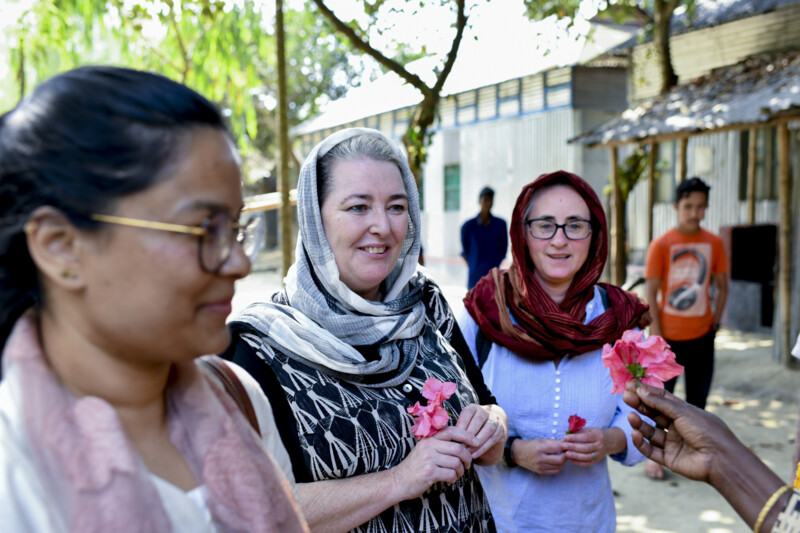As we’ve seen in recent interviews, Indian organisation (and Oxfam partner) SAKAV is dedicated to improving conditions for poor indigenous and farming families living in Maharashtra. This week, we meet SAKAV’s Director Arun Shivkar, who tells us about the organisation’s aims, what kinds of programs it runs, and the challenges involved. Interview conducted by Chris Johnson.
When was SAKAV founded and why?
Arun: This area, especially the poor communities … we are facing a number of problems. With regards to the tribals [people from Indigenous communities such as the Katkari and Thakar]… tribals were the bonded labourers of higher-caste people in this area … many of them used to migrate to the charcoal-making industry in far-flung areas … The other poor community is a smaller marginal farming community … and they were also getting affected because … agricultural land there was degraded … So on this background, we thought that there should be some organisation which could help these people out of poverty and marginalisation — and that is why we formed SAKAV in 1994.
Could you tell us about some of your programs focused on enhancing food security in the area?
Arun: We have three types of livelihood promotion programs … Especially amongst the tribals, and amongst the poor small marginal farmers, we have started vegetable cultivation. All these programs are based on local natural resource management. We use the local land, we use the local water resources, to create livelihood opportunities amongst the poor people here … we help people to understand the potential of using the land for growing and earning income.
Second program we are promoting amongst the people here…the women here…is the collective farming. This select group of women pool their savings to take land on lease from the local farmers and take up collective farming, like vegetable growing and piri piri [chilli] cultivation and all those kinds of local crops.
Third is the processing of the food products here, especially the beans and the piri piri and the different types of prunes … we process them, we pack them and then we sell in the local markets here.
These are the three different livelihood programs we have … promoted amongst the local tribals, women and the smaller marginal farmers.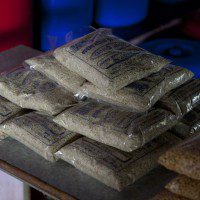
How do people become involved in your programs? Say I’m interested in getting access to land and I want to change my life – how would I do it?
Arun: We have been working in this area for the last 15─16 years. And in all our village offices we have promoted local people’s communities … In all the villages, social issues are discussed in those communities. So, when these issues come up … or when the problems come to us through our staff [and] volunteers, we address them.
The demand for water pumps and diesel pumps came from the people — for irrigation purposes and cultivating the vegetables … good suggestions from the people to create opportunities in the local area. Then we approached Oxfam and Oxfam was very positive in responding to our project, and gave us diesel pumps for irrigating the fields.
There are … a number of government schemes out there. We create awareness amongst the people about these … schemes, [then] they suggest … please help us in accessing this or that scheme. And then we help the people.
When such issues come up in the village meetings we help people develop a strategy — how to approach the local government officials, how to approach at state level — and accordingly we plan our strategy.
Livelihood is a big issue amongst the tribals. Fortunately there are some very good acts in place [and they] can get the land under the Forest Rights Act 2006. So we are helping tribals in our operational area to get their land rights. We will also help them to develop the lands by mobilising the government employment schemes. So we will make these lands cultivatable, so that tribals are able to earn their livelihoods from the local land areas.
How long has Oxfam been supporting SAKAV? And why is it so vital to keep supporting SAKAV?
Arun: Oxfam [has been] supporting us from 1994. Oxfam has been very happy with our work, especially because we have produced results against whatever support [they have] given us. So, Oxfam has very good faith in us and our abilities. And Oxfam is also aware of all the challenges these communities are facing … And based on these issues, and our work, Oxfam is supporting us.
What are your hopes for the future for this area?
Arun: Our future is not without a struggle. We will continue our struggle against the wrong development policies, and [for] the betterment of the local people. We have been successful securing livelihood for the people here, we have stalled the advancement of the Special Economic Zone here, and we are sure that we will get the compensation for the fishing community. Whatever challenges come in the future, our communities and SAKAV are ready to handle them … Our struggle will continue – but, while struggling, we will ensure that the people have a better life.
Find out more
Your donation to our Harvest Appeal will help us support local organisations like SAKAV continue their important work for indigenous and agricultural families in rural India.
Learn more about our work in India.
Next week: Ambaji and Suman tell us how different their lives are since they were introduced to SAKAV.
